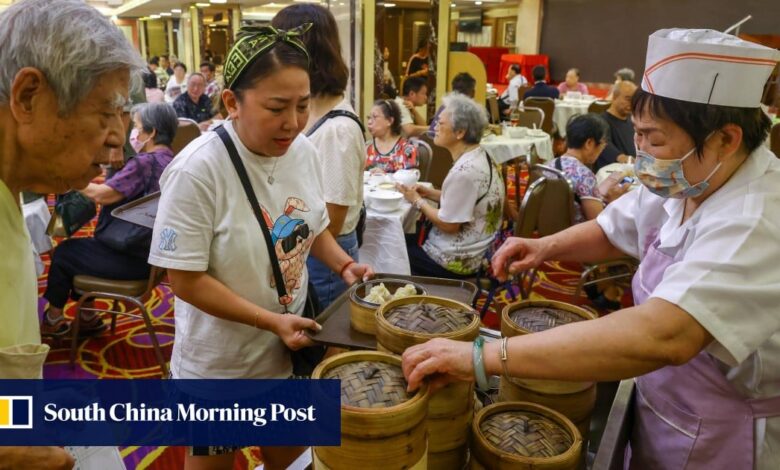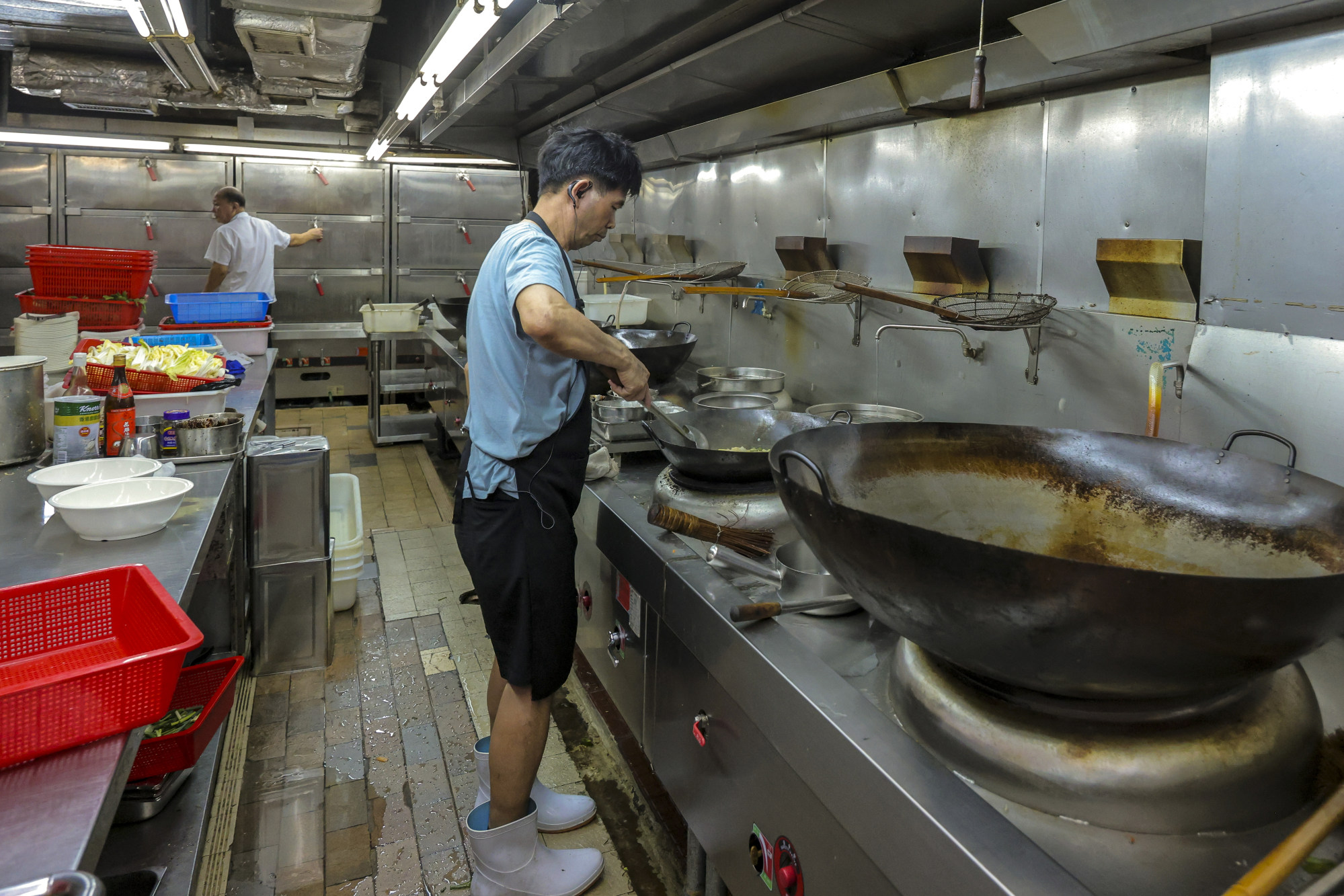New Hong Kong scheme for faster recruitment of low-skilled staff from outside city gets off to slow start with applications for just 158 positions

[ad_1]
“That the number of applications received on the first day of the scheme is relatively small does not mean there is no staff shortage.”

Shiu added many employers were interested in applying but not many were familiar with the application process and had opted for a “wait and see” stance.
He appealed to the government to step up promotion of the changes to the recruitment scheme.
A department spokesman declined to comment on the response on the first day.
But he highlighted forms could be submitted up to 6.30pm and that there was no deadline for applications.
Employers said it was too early to judge the response based on first day figures and insisted the city needed to bring in workers to ease a staffing crisis.
Simon Wong Kit-lung, the chairman of catering company LH Group, agreed it was too early to judge.
“There is not a deadline for application. There is no need to rush to apply on the first day,” Wong said.
He added his company had not submitted an application either.
Union lawmaker Michael Luk Chung-hung also said the first day’s figures did not reflect the demand for staff.
But he said: “We are talking about some low-skilled jobs this time and if the employers are willing to pay more, they should not have a big problem finding suitable candidates locally.”
No need for quota in expanded scheme to import workers: Hong Kong labour chief
No need for quota in expanded scheme to import workers: Hong Kong labour chief
The relaxed recruitment programme, the Enhanced Supplementary Labour Scheme, which will run for two years, was part of a government drive to ease staffing shortages.
Employers can apply to bring in workers for 26 low-skilled job categories not included in the earlier scheme.
The roles added included sales assistants, receptionists, cashiers, waiters, junior cooks, tellers, washers, pressers, hairdressers, and delivery workers.
Application procedures will also be streamlined in a bid to complete processing of applications inside three months, compared with the previous average of five months.
Employees brought in under the revised scheme cannot stay for longer than two years and they must be paid no less than the median monthly income of city workers in comparable positions.
Employers with successful applications are required to provide accommodation for staff hired under the scheme, either in the city or on the mainland.
They are also required to pay a levy of up to HK$9,600 for each staff member brought in to fund the retraining of the city workforce.
Caspar Tsui Ying-wai, the executive director of the Federation of Hong Kong Hotel Owners, earlier on Monday said that some smaller operators in the sector were not familiar with the accommodation arrangements for workers from outside the city and might also decide to wait and see.
He said the relaxed scheme was needed as the sector faced a “crazy” shortage of about 9,000 workers.
Hong Kong’s relaxed labour import scheme ‘may only benefit mid-to-large companies’
Hong Kong’s relaxed labour import scheme ‘may only benefit mid-to-large companies’
Tsui predicted the hotel sector would apply to import about 2.000 staff altogether.
“Many of the hotels are prevented from coming into full operation,” he said.
“The most critical shortage is in housekeeping. There are also not enough waiters, cooks, and receptionists.”
Hong Kong Laundry Services Association chairman Eric Lin said the need to arrange accommodation for staff brought to the city under the revised scheme may have deterred some employers.
“I would say over 90 per cent of our members have a real need to import workers,” he said.
“Importing workers is badly needed, partly because many of the existing workers are getting old. A survey earlier this year by our association found that about 5,700, or around a third, of the workers in the sector were aged 60 or above.”
“But having to offer accommodation for imported workers can be a big problem. Housing in Hong Kong is not cheap,” Lin said.
“It is not cost effective to rent rooms for individual imported workers either. We hope the government can arrange housing for imported workers and employers can pay rents to the government.”
About 5,800 workers were given permission to work in Hong Kong last year under the old supplementary labour scheme.
The government in June also announced sector-specific outside Hong Kong recruitment schemes for the construction and transport sectors.
[ad_2]
Source link





